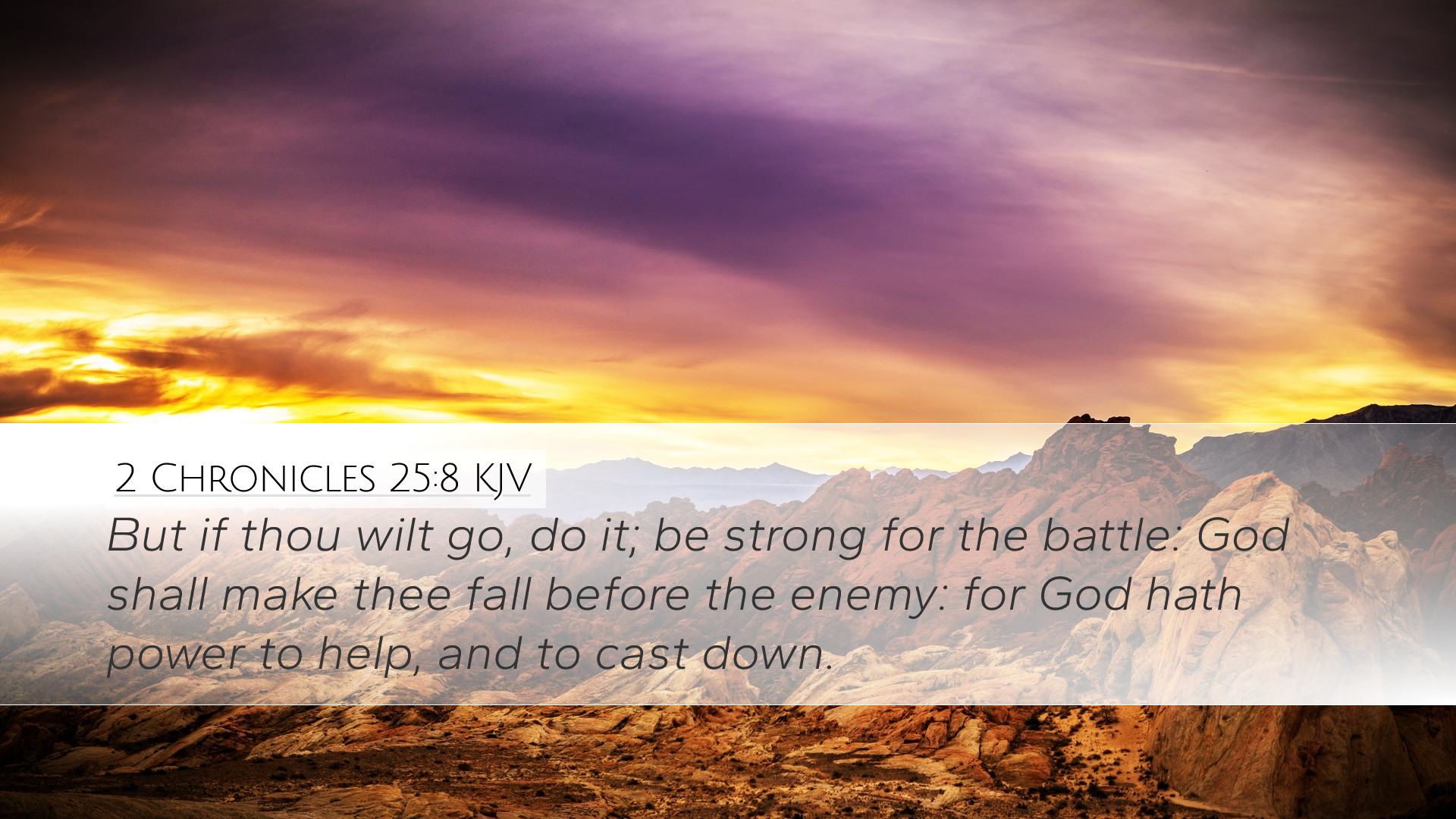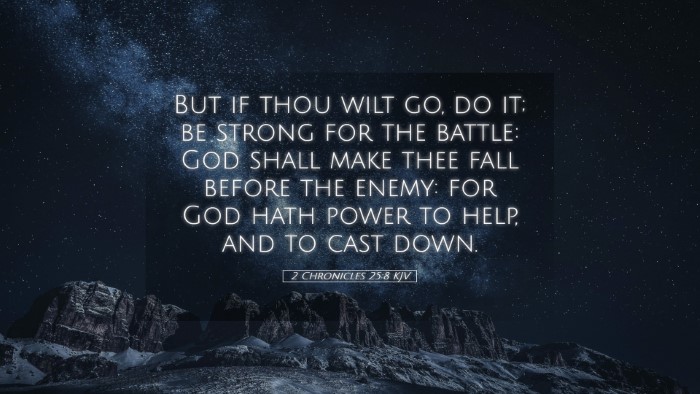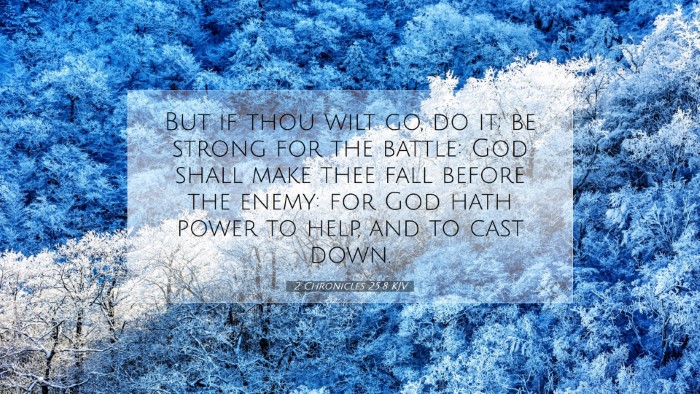Commentary on 2 Chronicles 25:8
2 Chronicles 25:8 states: "But if you go, be strong for the battle; God will make you fall before the enemy, for God has power to help or to cast down." This verse is a profound reminder of the sovereignty of God over the affairs of men and the importance of reliance upon Him in times of conflict.
Contextual Background
The kings of Israel and Judah during this period were often engaged in battles that were not just physical but also spiritual. This particular verse reflects the tension between reliance on military strength and spiritual fidelity.
Insights from Matthew Henry
Matthew Henry points to the tension between human efforts and divine will. He emphasizes that:
- The readiness for conflict should always be tempered with an understanding of God's involvement. Strength in battle does not guarantee victory if God is not on one’s side.
- He notes that God’s power encompasses both assistance in triumph and the ability to deliver defeat, thus encouraging the reader to remain humble before God’s will.
Insights from Albert Barnes
Albert Barnes provides a detailed exposition that highlights the themes of divine providence and personal responsibility:
- He points out the need for preparation and strength before engaging in any endeavor, particularly when it poses significant risk. However, this preparation should align with God’s intentions.
- Barnes stresses that while the leader, in this case, is encouraged to be strong, ultimately the decision lies within God's choices regarding success or failure in human affairs.
Insights from Adam Clarke
Adam Clarke expands the discussion by linking this verse to the broader theological implications concerning God's character:
- He interprets this verse as a divine warning that presumes the condition of humility and faithfulness in God. The fear of falling before the enemy is contingent upon the nation’s fidelity to God.
- Clarke introduces the notion that while God calls His people to act and engage earnestly in the battles they face, there exists the grave caution that their success hinges upon their allegiance to His commands.
Theological Reflections
This verse serves as an important theological reflection that echoes throughout Scripture:
- The Dual Nature of God's Sovereignty: It speaks to the paradox of God's sovereignty - He is the ultimate arbiter of victory yet encourages His people to engage earnestly in their endeavors.
- The Requirement of Faith: Victory, both in spiritual and physical realms, requires faith and obedience to God. God’s power is intimately associated with our willingness to align with His will.
- Encouragement in Conflict: For pastors and leaders, this verse offers encouragement: while challenging situations may arise, relying on God's strength will provide hope and direction.
Practical Applications
Finally, what practical lessons can we take from 2 Chronicles 25:8 for contemporary believers?
- Preparation for Battle: Engaging in spiritual disciplines such as prayer, fasting, and study of the Word prepares believers for life's spiritual battles.
- Recognizing God’s Authority: Understanding that ultimately, victory is in God's hands can cultivate a spirit of humility and reliance on Him.
- Community Engagement: In any undertaking, especially those serious in nature such as church leadership or ministry work, gathering counsel and prayerfully considering God’s will with others is essential.
Conclusion
2 Chronicles 25:8 carries a much-needed reminder of the balance of human effort and divine intervention. The reflections from Matthew Henry, Albert Barnes, and Adam Clarke serve as theological and practical guides, illustrating that in all conflicts, recognition of God's supreme authority is essential for true strength and victory.


